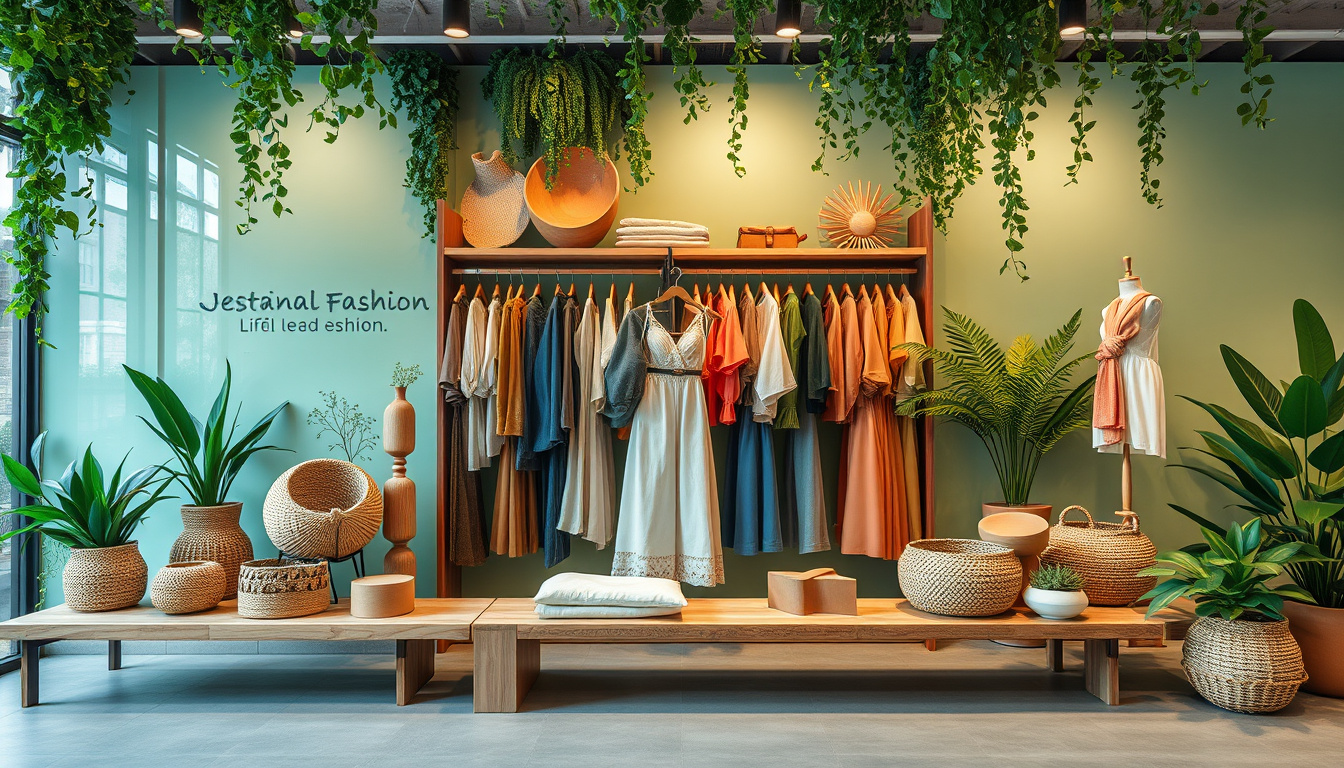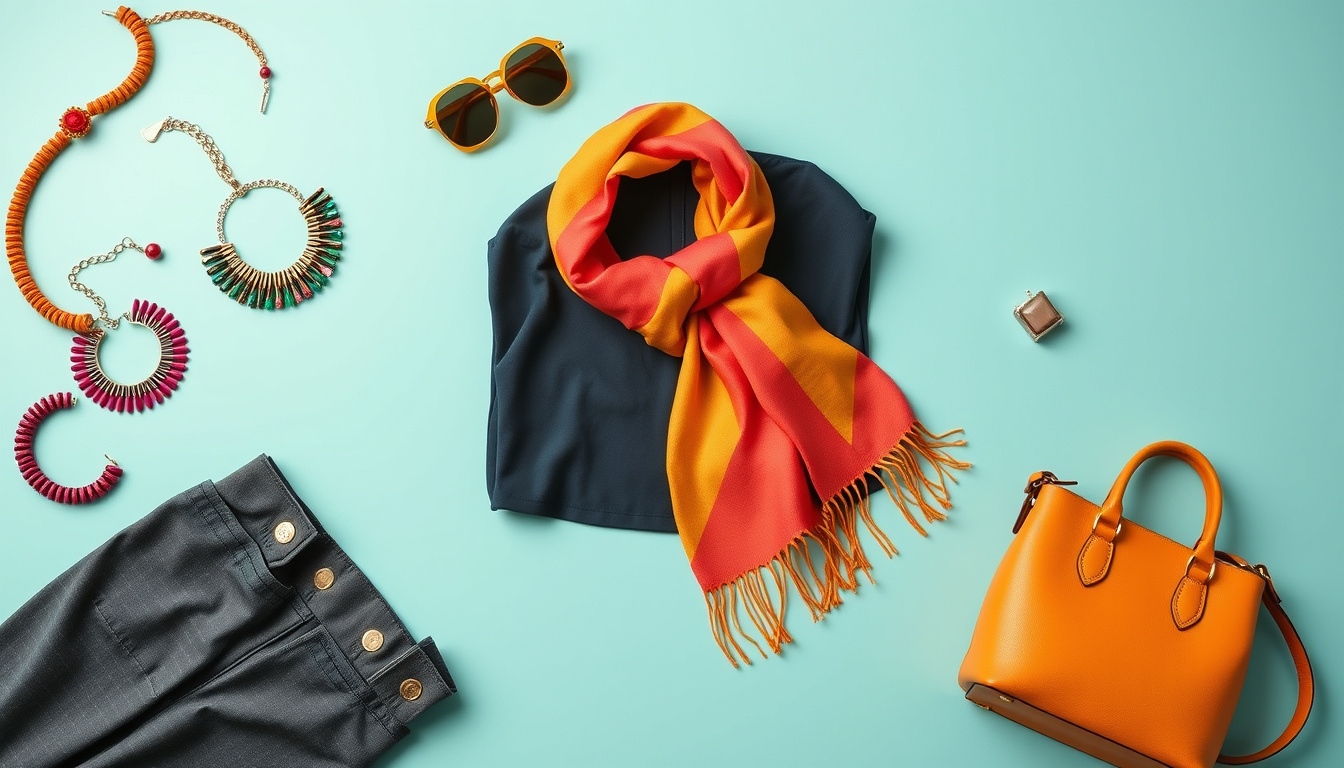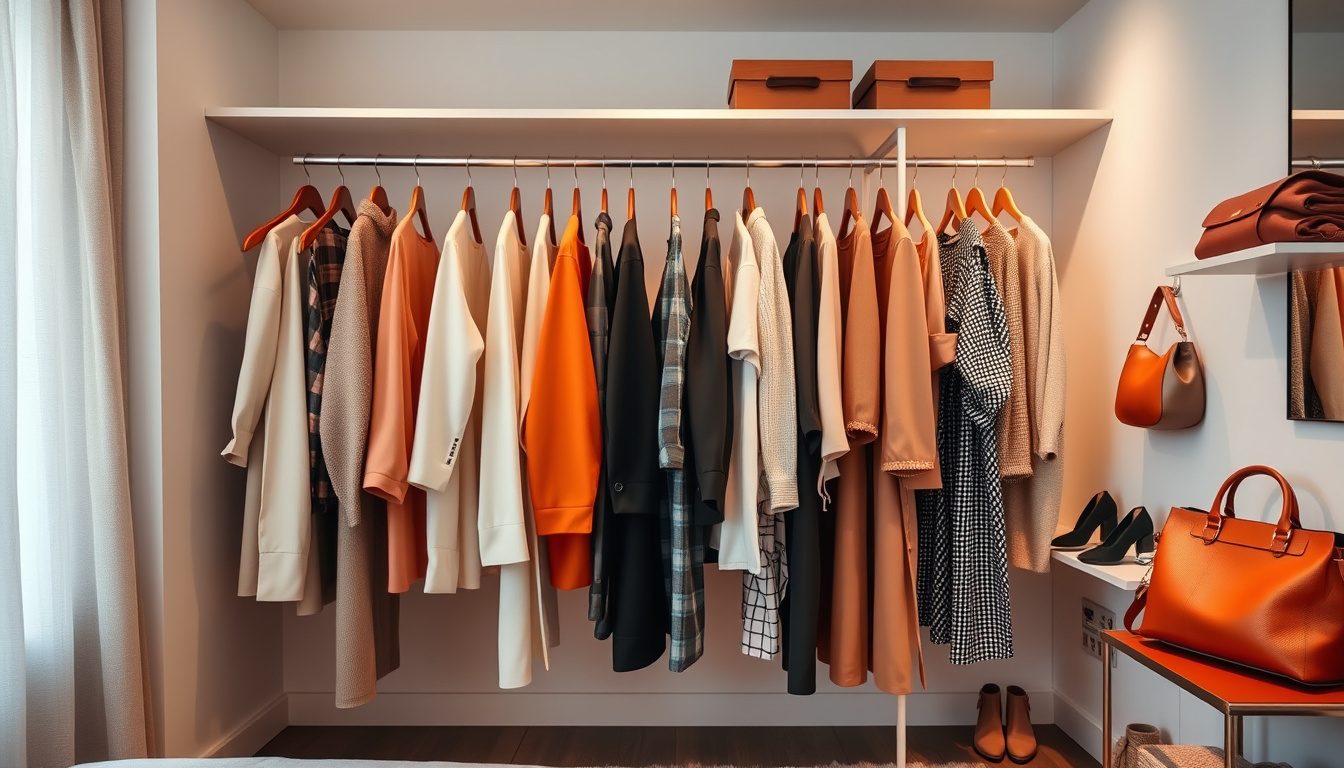Sustainable fashion is more than just a trend—it’s a movement that signifies a profound shift towards more ethical and eco-friendly practices in the fashion industry. As consumers become increasingly aware of the environmental and social implications of their clothing choices, the demand for sustainable fashion has surged. In this article, we will explore what sustainable fashion means, the importance of ethical practices, and highlight some of the top sustainable fashion brands you should know. We’ll also provide tips on how to identify truly sustainable brands and build a wardrobe that aligns with your values. Join us as we delve into the world of sustainable fashion and discover how you can make a positive impact with your wardrobe.

Key Takeaways
- Sustainable fashion prioritizes ethical practices and environmental responsibility.
- Understanding ethical fashion is crucial for fostering positive change in the industry.
- Exploring top sustainable brands can help consumers make informed choices.
- Identifying truly sustainable brands involves researching their practices and supply chains.
- Building a sustainable wardrobe requires thoughtful purchasing and mindful consumption.
Introduction to Sustainable Fashion
Sustainable fashion is more than just a trend; it represents a commitment to conscientious consumerism and environmental stewardship. As the fashion industry faces criticism for its detrimental impact on the planet, a growing number of brands are championing sustainable practices by prioritizing ethical treatment of workers, eco-friendly materials, and reduced waste.
When we speak of sustainable fashion, we refer to clothing and accessories that are produced in a way that enhances rather than harms the environment. These ethical brands you should know stand out in their commitment to sustainability, creating transparency in their supply chains, using organic or recycled materials, and implementing fair trade practices. Some noteworthy names include Patagonia, known for its durable outdoor wear and commitment to environmental activism, and Reformation, which combines trendy designs with responsible production methods. By choosing to support these brands, consumers play a vital role in fostering a fashion industry that respects both people and the planet, making sustainable fashion not only a responsible choice but also a style statement.
Importance of Ethical Practices in Fashion
In today’s rapidly evolving fashion landscape, the importance of ethical practices cannot be overstated, particularly when it comes to sustainable fashion. As consumers become more aware of the detrimental environmental and societal impacts of the fashion industry, the demand for sustainable fashion has surged, leading to a rise in ethical brands you should know. These brands not only prioritize eco-friendly materials and practices but also advocate for fair labor conditions and transparency within their supply chains. By choosing to support these ethical brands, consumers play a pivotal role in fostering a more just and responsible fashion future. Sustainable fashion is not just a trend; it represents a shift towards a more conscious consumer culture that values both style and ethics, making it imperative to explore the various ethical brands that are paving the way for change in the industry.
‘Fashion is about dreaming and making other people dream. But the reality is that we need to make it a dream we can sustain.’ – Stella McCartney

Top Sustainable Fashion Brands to Explore
In recent years, sustainable fashion has emerged as a pivotal movement within the apparel industry, gaining traction among conscious consumers eager to make environmentally-friendly choices. As we delve into the world of sustainable fashion, here are some ethical brands you should know, each embodying principles of sustainability through their innovative practices. Patagonia is a trailblazer in this realm, focusing on using recycled materials and promoting fair labor practices. Similarly, Reformation stands out for their commitment to stylish yet ecologically-conscious garments made from sustainable materials. Another notable mention is Eileen Fisher, renowned for her dedication to reducing waste and advocating for sustainable sourcing. Additionally, People Tree has been a pioneer in fair trade fashion, ensuring that artisans are paid a living wage and work in safe conditions. Each of these brands exemplifies best practices in sustainable fashion, making them worthy of consideration for consumers looking to align their wardrobe choices with their values.
How to Identify Truly Sustainable Brands
In recent years, sustainable fashion has gained significant attention, with an increasing number of consumers seeking ethical brands that prioritize the environment and social responsibility. To identify truly sustainable brands, start by examining their supply chain transparency. Look for companies that disclose materials used, production processes, and the origin of their goods. Ethical brands often utilize eco-friendly materials such as organic cotton, recycled fabrics, or innovative alternatives like Tencel and Piñatex. Next, check whether these brands have certifications from reputable organizations, such as Fair Trade, GOTS (Global Organic Textile Standard), or B Corp, which signify adherence to rigorous environmental and ethical standards. Additionally, assess their commitment to fair labor practices by researching factory conditions and employee treatment. Engaging with brand stories on their websites and social media can also provide insights into their core values and mission. Embracing sustainable fashion means supporting ethical brands that not only create stylish clothing but also ensure a positive impact on the world.

Tips for Building a Sustainable Wardrobe
Building a sustainable wardrobe is an essential step towards making fashion more eco-friendly and ethical. When exploring sustainable fashion, it’s vital to choose ethical brands that prioritize environmentally-friendly practices. Start by decluttering your existing closet to identify items that need to be recycled or donated, allowing you to make space for conscious purchases. Next, invest in versatile pieces from sustainable fashion brands that use organic materials, promote fair labor practices, and employ low-impact production methods. Brands like Reformation, Everlane, and People Tree are excellent examples of ethical brands you should know, as they incorporate transparency in their supply chains and uphold sustainable practices. Moreover, consider purchasing second-hand clothing, as thrift shops and online vintage marketplaces contribute to reducing textile waste and promote the circular economy. By selecting quality over quantity and supporting sustainable fashion, you not only enhance your wardrobe but also contribute to a more ethical and sustainable future.
Frequently Asked Questions
What is sustainable fashion?
Sustainable fashion refers to clothing and accessory production that considers environmental and ethical impacts. This includes the use of eco-friendly materials, fair labor practices, and reducing waste in the fashion supply chain.
Why is it important to support ethical fashion brands?
Supporting ethical fashion brands helps promote fair labor practices, reduce environmental impact, and encourages the fashion industry to adopt more sustainable practices. It also empowers communities by supporting fair wages and safe working conditions for workers.
What are some of the top sustainable fashion brands?
Some top sustainable fashion brands include Patagonia, Everlane, Reformation, Eileen Fisher, and Veja. These brands focus on environmentally friendly materials, ethical labor practices, and transparency in their production processes.
How can I tell if a brand is truly sustainable?
To identify truly sustainable brands, look for certifications such as Fair Trade, GOTS (Global Organic Textile Standard), or B Corp. Additionally, research a brand’s supply chain transparency, materials used, and commitment to ethical practices.
What tips do you have for building a sustainable wardrobe?
When building a sustainable wardrobe, focus on quality over quantity by investing in timeless pieces, opting for second-hand clothing, choosing brands that prioritize sustainability, and incorporating versatile items that can be styled in multiple ways.




